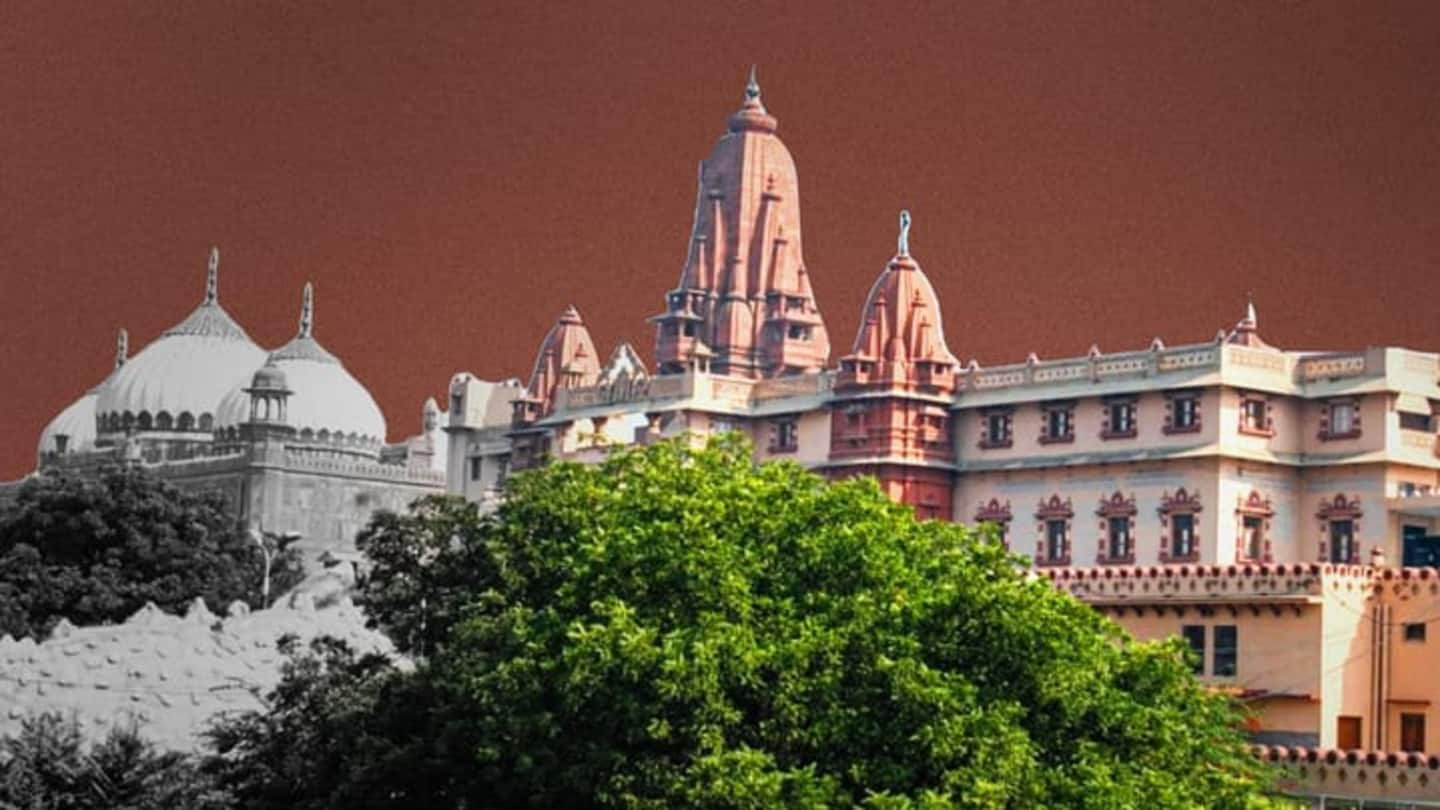
Mathura: Court orders Shahi Idgah Masjid's survey after January 2
What's the story
A court in Uttar Pradesh's Mathura ordered the Archaeological Survey of India (ASI) to conduct a survey of the Shahi Idgah Masjid after January 2, NDTV reported.
It asked the authorities to submit the report by January 20.
This came in response to a plea by right-wing organization Hindu Sena's chief Vishnu Gupta, claiming the mosque was built on Krishna Janmabhoomi (Lord Krishna's birthplace).
Context
Why does this story matter?
The development comes at a time when the Supreme Court and a Varanasi court are hearing the Gyanvapi Mosque-Shringar Gauri case.
Both cases are similar in nature, where the Hindu petitioners claim that mosques were built on disputed temple lands.
Notably, such cases have assumed significance following the Supreme Court's landmark decision in the Babri Masjid-Ram Janambhoomi dispute in 2019.
Details
Survey order similar to Gyanvapi Mosque case
According to Mint, the court ordered a survey of Shahi Idgah Mosque on the lines of the videography survey of the Gyanvapi Mosque ordered by a Varanasi court earlier.
"The learned judge...ordered Amin (term used to refer to a revenue department official) on December 8 to inform both the parties and submit a survey report on the next hearing," the petitioners' counsel told Mint.
Claims
What did the petitioners claim?
On December 8, Hindu Sena President Gupta and its Vice President Surjit Singh Yadav claimed in the court, through their counsel Shailesh Dubey, the said mosque was constructed by Mughal Emperor Aurangzeb by demolishing the temple on the land of Lord Krishna's birthplace.
The petition also challenged the agreement made between Shri Krishna Janmasthan Seva Sangh and Shahi Masjid Idgah in the year 1968.
Details
Earlier, petitioners sought to 'represent Lord Krishna'
Earlier, several Hindu organizations filed petitions requesting the mosque be removed from Lord Krishna's birthplace.
Lucknow-based lawyer Ranjana Agnihotri filed a lawsuit as the "next friend of the infant Lord Krishna," saying as his worshipers, they had the right to demand the restoration of his property.
A "next friend" is someone who represents another person in court if the latter's unable to represent themselves.
Facts
What puts spotlight on the issue
Amid the Kashi Vishwanath-Gyanvapi Mosque row, the Mathura court on May 19 allowed a petition seeking the removal of the Shahi Idgah Mosque near the Krishna Janmabhoomi.
The petitioner had claimed that the mosque was built by Mughal emperor Aurangzeb in 1669-70 on the land belonging to the Katra Keshav Dev Temple, the birthplace of Lord Krishna.
Details
Demands by the petitioners in Mathura court
Petitioners have been seeking the ownership of 13.37 acres of Krishna Janmabhoomi and Shahi Idgah Mosque's removal from its premises.
One of the petitioners had also requested the court to demolish the mosque built on the trust's land, declare it illegal, and hand over the entire land to the de facto owner—Lord Shri Krishna Virajman of the Katra Keshav Dev Temple.
Plea
Court allowed plea to seal mosque earlier
The petitioners also sought a court-monitored excavation of the disputed site and demanded that an inquiry report of the excavation should be submitted to the court.
The hearing in this case in Mathura's Sessions Court concluded on May 6.
Later, the Mathura court also allowed a plea to seal the Shahi Idgah Mosque near the Krishna Janmabhoomi.
Past development
Lawsuit was earlier dismissed citing Places of Worship Act
Notably, the Mathura civil court had earlier dismissed the case over the mosque citing the Places of Worship Act of 1991.
It had also said that if a lawsuit was registered, then worshippers would approach the court with various cases.
The order was, however, challenged by the petitioners, who argued that as Lord Krishna devotees, they had a right to approach the court.
Information
What is the Places of Worship Act, 1991?
The Places of Worship Act, 1991, lays down that the character of a religious place cannot be altered from what it was on August 15, 1947. The SC has consistently upheld the Act while granting an exception only in the Babri Masjid-Ram Janmabhoomi case.